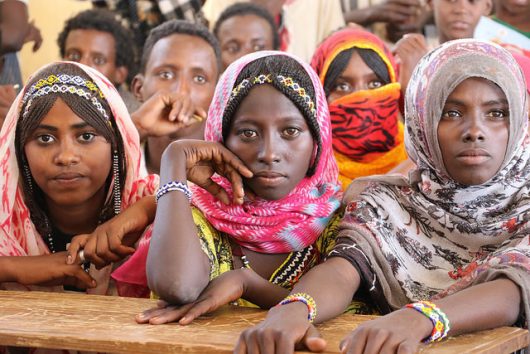Is the World Ready for Universal Basic Income?

According to a United Nations (U.N.) report, inequality is rising in both developed and developing countries. Many people lack access to basic healthcare, clean water and food. For example, the U.S. has the largest economy in the world yet ranks second in income inequality out of the 32 developed countries indexed by the Organization for Economic Co-operation and Development (OECD).
It is apparent that poverty, inequality and access to healthcare are transnational issues that know no boundaries. Each year, more and more jobs become automated. Artificial intelligence is taking the place of blue-collar jobs all over the world. A 2013 Oxford study estimates that 47 percent of U.S. jobs will be taken over by robots, automated technology and artificial intelligence within the next 10 to 20 years. The World Bank states that the shift will be even more drastic in developing countries. This is because almost two-thirds of jobs are at risk of being replaced by automation.
Some of the world’s brightest minds believe that the culmination of rising inequality, poverty and workforce automation will inevitably draw humanity toward a universal basic income.
“I think that from a human decency standard there’s a lot of sense to the idea that everybody in a society should be able to meet their basic needs,” says Jeffrey Sachs, economist and director at the Earth Institute at Columbia University.
Another expert, Elon Musk, says that “there is a pretty good chance we end up with a universal basic income, or something like that, due to automation.”
When the Basic Income Grant Pilot Project (BIG) was trialed in India, results showed that recipient households were three times more likely to start a new business than others. In Namibia, crime rates dropped by 36 percent despite an influx of immigration after BIG was implemented. “When you have a safety-net people will take more risks,” says Martin Ford, author of Rise of the Robots. Human ingenuity is restricted in a system that forces people to work low-level jobs to pay for their existence. Universal basic income ensures that everyone reaches the first rung of Maslow’s Hierarchy of Needs, ensuring that basic needs are met. This will drastically improve the quality of life on Earth in developed and developing countries alike. This generation could actually live to see the end of poverty on Earth.
The only way that a phenomenon like this could come to fruition is if the cost of not moving to a universal basic income becomes greater than doing nothing. As more humans are phased out of work by robots, the cost of welfare will extrapolate until it is necessary to switch to a universal basic income.
– Josh Ward
Photo: Flickr
